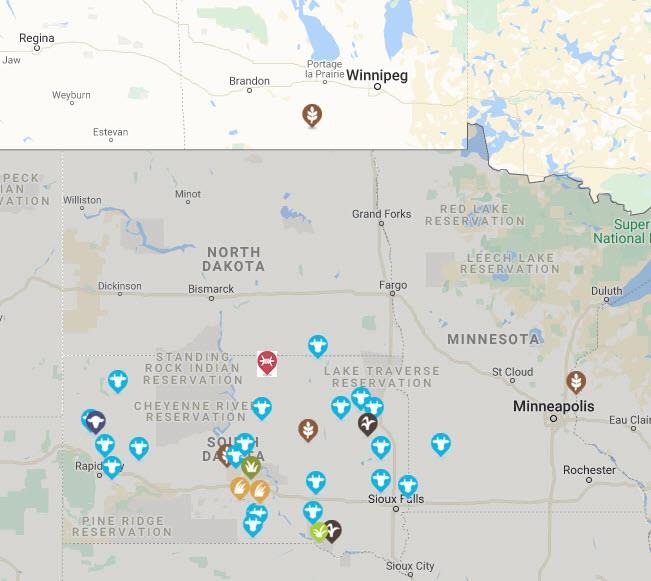This online resource connects grain farmers and livestock producers
By Diego Flammini
Staff Writer
Farms.com
A new online resource launched to connect grain farmers with land available for grazing with livestock producers who need feed.
The Manitoba Organic Alliance (MOA) and Manitoba Forage and Grassland Association launched the Manitoba Grazing Exchange website on Jan. 27.
“We’re a matchmaking site,” Karen Klassen, executive director of the MOA, told Farms.com. “We facilitate meetings between livestock producers and people with land they’d like to have grazed.”
Interested people are asked to make a free account on the site with contact information, locate his or her farm, add a pin and include any relevant details about their land, livestock and individual arrangements.

Screenshot from the Manitoba Grazing Exchange website.
Once the two parties have connected, they can discuss other parameters of the working relationship.
“Everyone will have a different relationship and different financial costs or expectations,” Klassen said. “For myself and my neighbour, who grazes cattle on my land, I provide the fencing, but he and his son move the fences and do all the animal handling work.”
MOA and the other ag groups borrowed the idea from farmers in the United States.
The South Dakota Grazing Exchange operates in the same manner. A farmer who uses it attended the Canadian conference to provide attendees with their accounts of using this kind of service.
The American farmer “had very different arrangements than what we might have, but it was good to hear about his experience using it,” Klassen said.
The Manitoba Grazing Exchange’s launch comes during a challenging time.
The 2021 drought in the Prairies has resulted in a lack of feed for cattle.
Having an opportunity to connect with someone who can provide feed for cattle is good for both parties, Klassen said.
“The cost of grain, feed and silage is very high right now,” Klassen said. “Livestock producers might save a bit of money on feed if they don’t have to supplement. And for grain farmers, having the cattle on the land helps spread manure and fertilize the land. You get a bit of a different ecosystem than if you just tilled it in.”
Despite the grazing exchange being launched in Manitoba, anyone around the world can add a pin to the map.
The purpose of the project is to connect as many people as possible who can help one another.
“We already have one person in Saskatchewan who signed up and we have a bunch in South Dakota,” she said. “Finding a connection in your area, no matter where that is, is what this project is all about.”
Conservation Trust, a Manitoba Climate and Green Plan Initiative, delivered by the Manitoba Habitat Heritage Association, also supported the project.